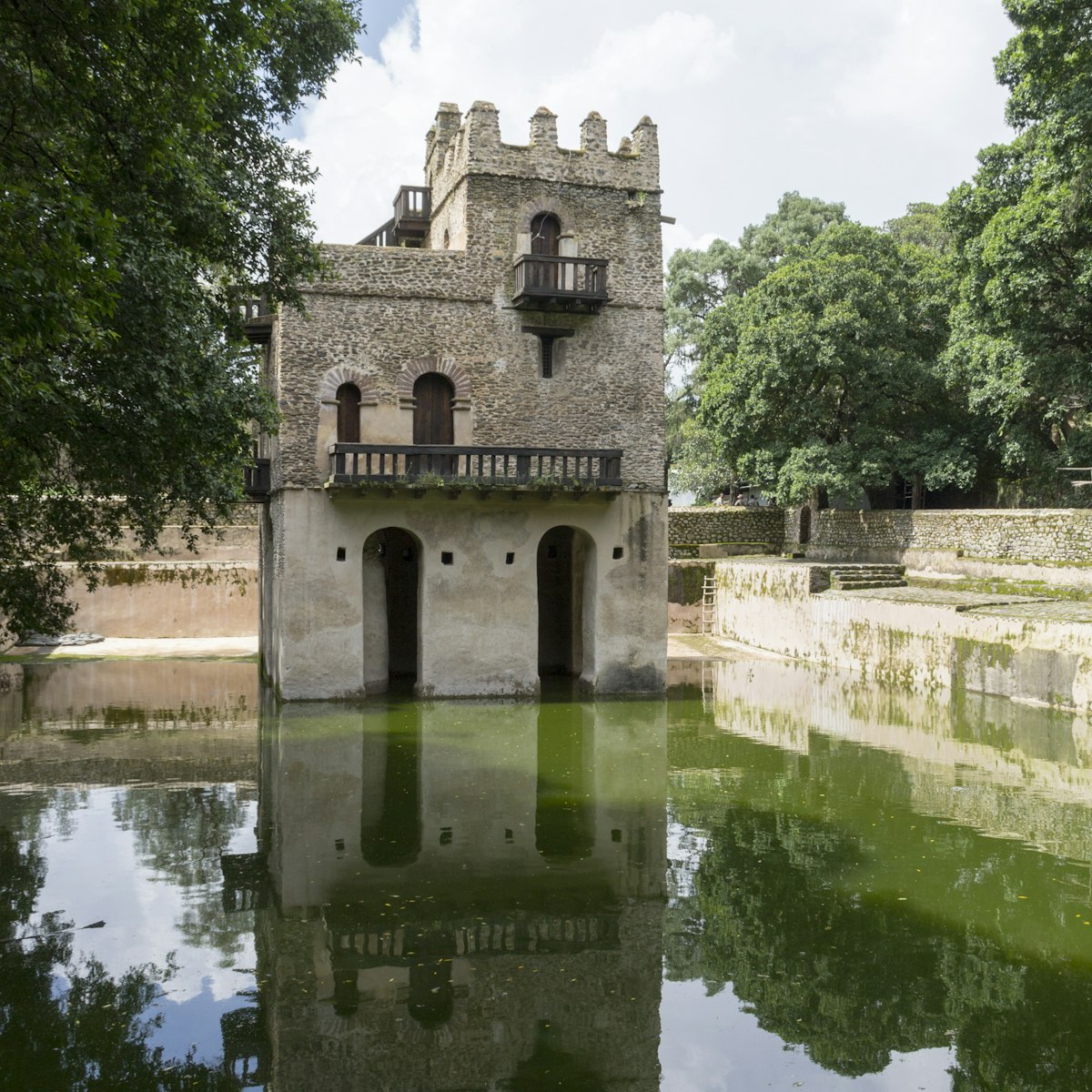Welcome to one of Ethiopia's most beautiful churches. Appealing as it is on the outside with its stone walls, arched doors and two-tiered thatch roof, it's the inner sanctuary of Debre Berhan Selassie, with its glorious frescos, that really shines. But it was very nearly destroyed like most of Gonder’s other churches. When the marauding Sudanese dervishes showed up outside the church gates in the 1880s, a giant swarm of bees surged out of the compound, chasing the invaders away.
The ceiling, with its rows and rows of winged cherubs representing the omnipresence of God, draws most eyes. There’s space for 135 cherubs, though 13 have been erased by water damage. Aside from the cherubs the highlights have to be the devilish Bosch-like depiction of hell. Although local tradition attributes most paintings to the 17th-century artist Haile Meskel, this is unlikely because the building only dates back to the late 18th century. The original circular church, created in the 1690s by Iyasu I, was destroyed by lightning.
A large stone wall with 12 rounded towers surrounds the compound and these represent the 12 apostles. The larger 13th tower (entrance gate) symbolises Christ and is shaped to resemble the Lion of Judah. If you have a keen eye, you’ll be able to spot the lion’s tail above the doorway in the wall west of the church.
Flash photography inside the church is forbidden. Priests offer tours, but a small contribution for the church should be left afterwards.



